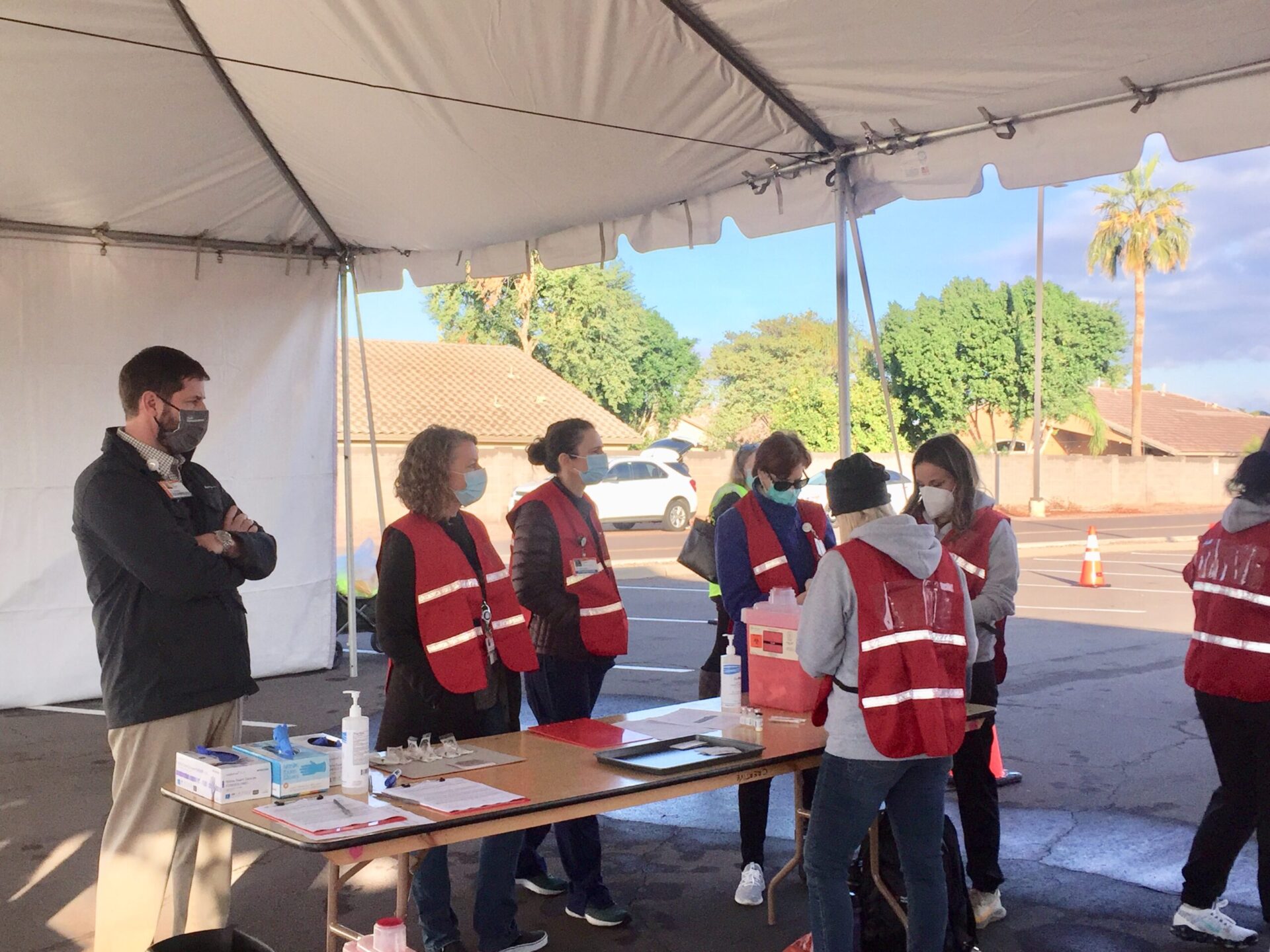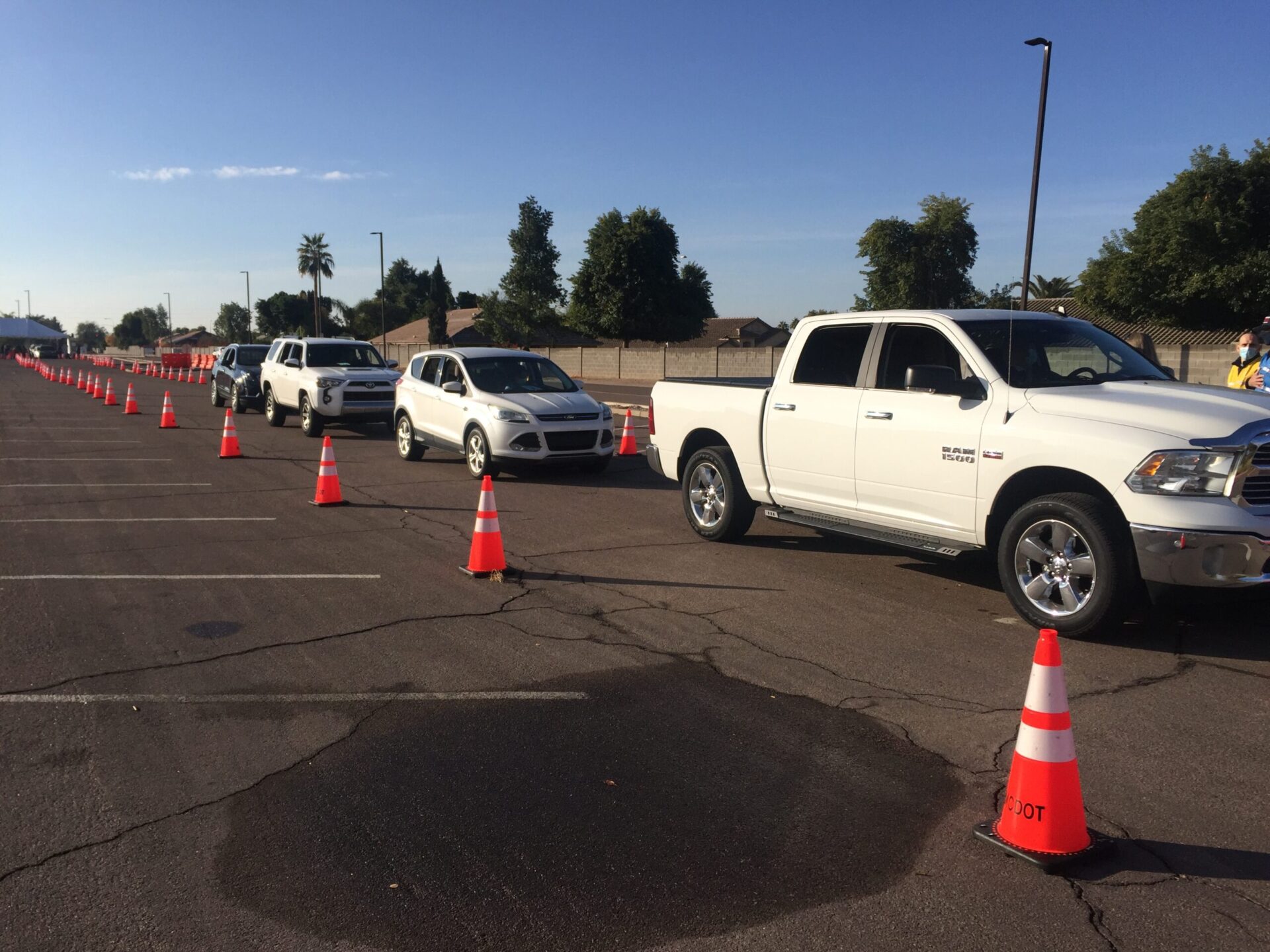
Chandler Regional Medical Center frontline health-care workers will be among the first in the Valley to receive the long-awaited vaccine for COVID-19.
Hours after experts recommended that the Food and Drug Administration authorize the vaccine, Dignity Health held a dry-run of the roll-out Dec. 11 at Chandler-Gilbert Community College.
In collaboration with state and county public-health officials, the CGCC site is among five in the Valley where designated frontline health-care workers–and not exclusively Dignity Health employees–can receive the vaccine in the first phase of inoculating the masses.
The first doses are tentatively to be given Dec. 21 at CGCC.
Heather James, director of nursing and quality assurance for Dignity Health Medical Group, spoke with Valley news media about the particulars of what the massive vaccination effort would entail.
The dry run, James said, was “just to be sure that logistically we can get the volume through here that we anticipate and have it as smooth as possible. We are anticipating up to 36,000 folks over a 10-day period.”
Health-care workers will preregister to receive the vaccine and will be guided through an algorithm to ensure that they qualify. Recipients will need a second dose three weeks after the first and will register to receive it before leaving CGCC.
“It’s a whole new type of nursing. It’s not something I’ve done before,” James said.
About 120 people will be needed to operate the 7 a.m. to 5 p.m. vaccine distribution at CGCC.
“Thirty-six-hundred vaccinations a day is a lot. This type of event, you’re trying to get everybody in and vaccinated as quickly as possible,” James said.
One purpose of a dry run, she said, was to see how long it takes someone to get through “making sure we don’t forget our standard nursing processes,” which could result in injury.

Of course, there are possible adverse reactions to the vaccine. Those are possible with any vaccine, James said, and that’s why EMT crews will be on hand as vaccines are given. Each recipient must wait 15 minutes before leaving the premises.
“As with any vaccine, you worry about anaphylaxis, somebody stopping breathing or having an allergic reaction primarily,” James said. She noted that there’s “a lot of misinformation out there” and urged the public to visit the FDA website for the facts about the vaccine instead of relying on social media.
“It’s a new vaccine no one has ever received. Any other vaccine we’ve had comes to the market and you take your standard precautions. But even when my pediatric clinic is giving routine vaccinations to kids, we are prepared for an anaphylactic reaction. That’s just standard for vaccines.”
James added that those with extreme allergic reactions should avoid the vaccine until their doctor tells them they may safely take it.
Complicating the distribution, the Pfizer vaccine requires subzero storage.
“Logistically, we worked on that but I don’t want to go into details,” James said to protect security of the vaccine.
“They’re going to require several freezers to accommodate the volume.
“Right now we just have Pfizer, but if we get Moderna, that opens it up because in a community setting you don’t have a deep-tissue freezer in a doctor’s office. It’s just not something you have.”
Dignity Health has partnered with CGCC police to ensure security of the vaccine distribution.
“They’ll be onsite and we also have Chandler Police Department and the National Guard onsite, so it’s a very secure location,” James said.
After months of waiting and thousands of lives lost, the importance of the vaccine’s arrival is not lost on James.
“It got very real, very quickly. We didn’t know what was going to happen…I equate it to planning a wedding for 36,000 of my closest friends, but I don’t know who the groom is and I don’t know when it will be,” James said. “But I know where it’ll be.
“That was the difficult part. So that actually is a blessing to know exactly what’s going to happen now.”
James asked the public to pray for health-care workers.
“This is the thing we’ve been waiting for but they are all very tired,” she said. “Our frontline workers, our ICU staff, our nurses, they’re just tired. They’re going to take care of anybody who comes in and all of our COVID patients, but people don’t stop having heart attacks and cancer at this time. So all of our work continues plus this added work.
“So wear your masks, wash your hands, social distance. Really abide by that because that in the long run is going to help us get out of this.”

